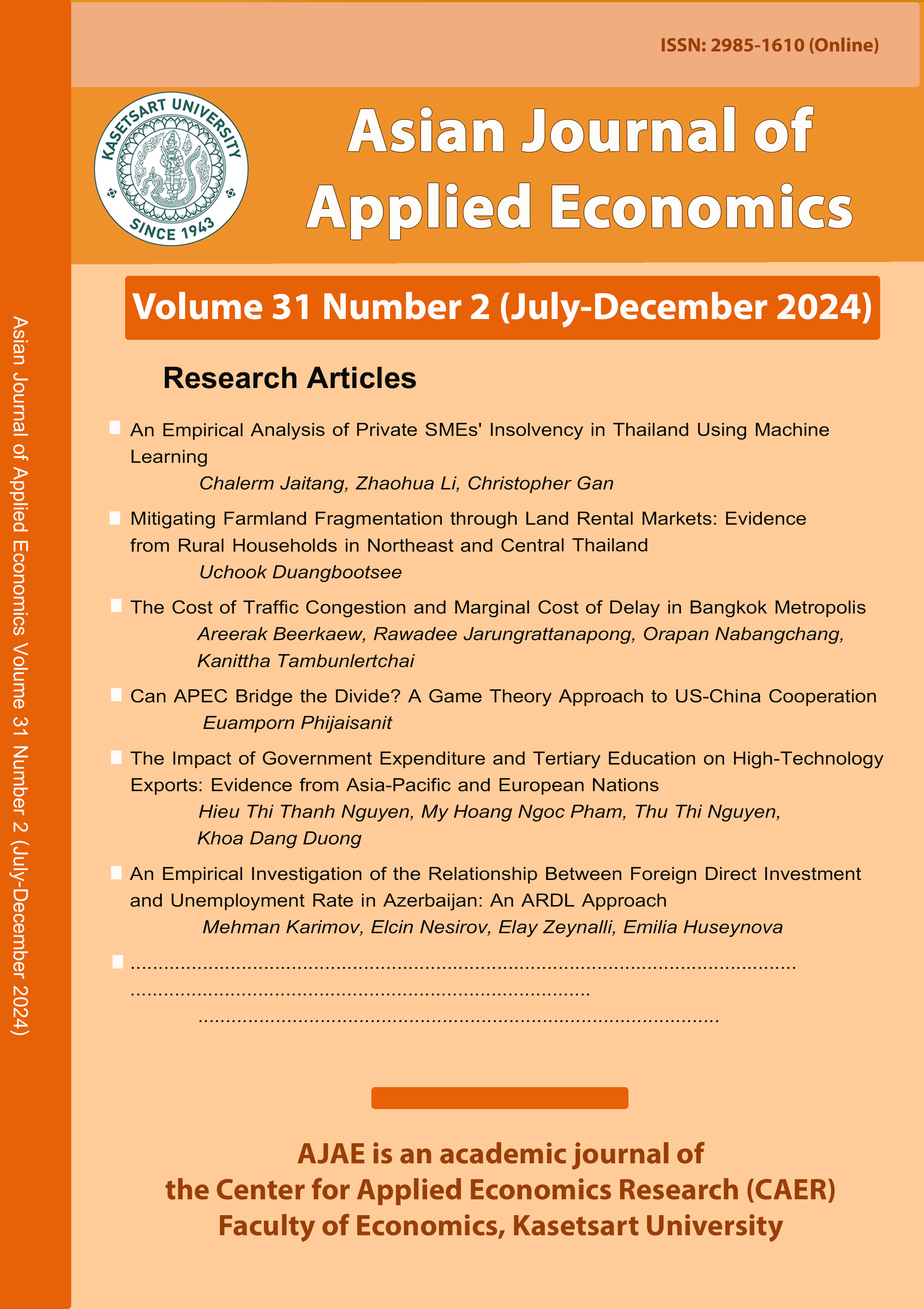Editorial Note
Main Article Content
Abstract
Volume 31, Issue 2 (July-December 2024) of the Asian Journal of Applied Economics (AJAE) presents eight articles addressing various economic challenges and opportunities across Asia. In line with our commitment to maintaining high academic standards and improving accessibility, we have recently updated our journal website to prominently display our ISSN in accordance with the new Thai-Citation Index (TCI) criteria. The first article employs machine learning techniques to analyze the insolvency risk of Thai SMEs, providing crucial insights for financial strategy and risk management. Focusing on agriculture, the second study explores how land rental markets can reduce farmland fragmentation in rural Thailand, promoting cohesive farming plots while balancing land consolidation with farm diversity. The third paper estimates the economic costs of traffic congestion in Bangkok, laying the groundwork for future research on optimal congestion pricing strategies.
Shifting to the international arena, the fourth article applies game theory from an international political economy perspective to examine the potential for US-China cooperation within APEC, emphasizing the long-term benefits of strategic collaboration. The fifth paper analyzes how tertiary education and government spending affect high-technology exports in Asia-Pacific and European countries, offering policy recommendations to enhance high-tech exports through strategic education investment. The sixth article focuses on Azerbaijan, using an ARDL approach to investigate the long-term impact of FDI on unemployment, providing insights for policymakers on how FDI can reduce unemployment. Environmental concerns are addressed in the seventh paper, which examines the interplay between trade openness, economic growth, and environmental sustainability, supporting the Environmental Kuznets Curve hypothesis and advocating for balanced policies that promote both economic and environmental goals. Finally, the eighth article analyzes the effects of bank credit on Lao PDR's economic growth, recommending policies to promote private lending and stricter controls on state enterprise credit.
Article Details

This work is licensed under a Creative Commons Attribution-NonCommercial-NoDerivatives 4.0 International License.
The paper is published under CC BY-NC-ND, in which the article is freely downloaded and shared in its original form non-commercially and its citation details are identified.


